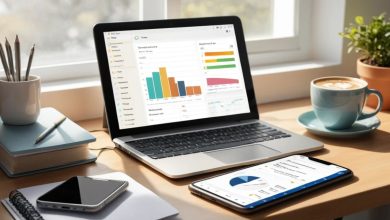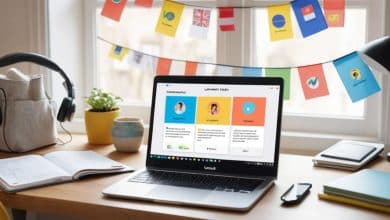Essential Educational Resources for Adult Learners Today
In an era where career pivots and skill upgrades happen at lightning speed, adult learners need curated, flexible resources more than ever. Whether you’re balancing a full-time job, family commitments, or both, knowing where to find high-quality educational tools can make the difference between feeling stuck and achieving your goals. This article explores the top categories of resources—MOOCs, mobile apps, community programs, and more—offers real-world success stories, and provides a clear roadmap to build your own learning plan.
Why Adult Learners Need Specialized Resources
-
Life Constraints: Unlike traditional students, adult learners juggle work responsibilities, family obligations, and personal commitments. Search terms like “online courses for adult learners” often prioritize flexibility more than rigid academic schedules.
-
Rapidly Changing Job Market: Industries evolve rapidly. Upskilling or reskilling via continuing education programs for adults helps you stay current and competitive.
-
Learning Preferences: Many adults prefer bite-sized lessons and practical projects that tie directly to workplace tasks. Resources emphasizing real-world application outperform generic lecture formats.
-
Equity & Cost Sensitivity: Tuition can be prohibitively expensive. Free or low-cost options—such as open educational resources—help learners avoid debt while acquiring valuable skills.
Selection Criteria for High-Impact Resources
Affordability
-
Free vs. Low-Cost vs. Employer-Sponsored: Seek platforms with audit options (e.g., Coursera, edX) where you pay only if you need a verified certificate. Some employers reimburse tuition up to a certain limit—check company-sponsored learning benefits.
Flexibility & Format
-
Self-Paced Courses: Platforms like Coursera for adult learners allow you to progress at your own speed.
-
Evening/Weekend Classes: Community college continuing education programs often run classes outside typical work hours.
-
Mobile-Friendly Apps: Mobile apps such as Duolingo or Khan Academy let you study during commutes or breaks.
Accreditation & Credential Value
-
Recognized Certificates: Look for courses backed by accredited institutions or professional organizations (e.g., Google Career Certificates).
-
Stackable Micro-Credentials: A series of smaller certificates can sometimes stack into a larger credential, improving resume value over time.
Relevance & Practical Application
-
Industry Partnerships: Select platforms that collaborate with employers to design curriculum—this increases the chances that skills taught align with real job requirements.
-
Hands-On Projects: Resources that incorporate case scenarios or capstone projects give you portfolio pieces to showcase to recruiters.
Community & Support
-
Peer Forums: Online discussion boards (e.g., Reddit’s r/learnprogramming or Coursera’s community forums) facilitate collaboration and problem-solving.
-
Mentorship Opportunities: Some platforms offer live Q&A sessions or connect you with volunteer mentors.
Top Categories of Educational Resources
| Category | Key Features & Examples |
|---|---|
| Massive Open Online Courses (MOOCs) | • Extensive catalogs from Harvard, MIT, and universities worldwide (Coursera, edX) • Audit courses for free; pay only for certificates |
| Community College & Continuing Education | • Local evening/weekend classes at affordable tuition rates • Workforce development programs with transferable credits |
| Open Educational Resources (OER) Libraries | • Free textbooks, lesson plans, and video tutorials (OpenStax, OER Commons) • Self-paced modules for dip-in learning |
| Mobile Learning Apps | • Duolingo (language acquisition), Khan Academy (math and science refreshers), LinkedIn Learning (professional video tutorials) |
| Professional Certification Platforms | • Udacity Nanodegrees, Google Career Certificates, IBM Data Science Professional Certificate • Industry-recognized credentials like CompTIA, PMP, and AWS |
| Local Library & Nonprofit Programs | • Free adult literacy classes, GED preparation, job-search workshops • Partnerships with workforce agencies offering stipends or grants |
| Podcasts & Webinars for Adults | • “The Adult Learning Podcast,” “Coursera Community Chats” for insights and tips • On-demand webinars hosted by professional societies and universities |
| Peer Mentorship & Meetup Groups | • Meetup.com groups (coding clubs, language exchanges) • Professional associations offering free or discounted mentorship programs |
Comparative Analysis: Free vs. Paid Resources
| Aspect | Free Resources | Paid Resources |
|---|---|---|
| Cost | $0–$50 per certificate (audit-only options) | $100–$1,200+ per full program |
| Credential Value | Informal badges, no degree credit | Official certificates, university credits |
| Flexibility | Fully self-paced; minimal live support | Cohort-based courses; scheduled live sessions |
| Depth of Content | Broad overviews, general fundamentals | In-depth modules, capstone projects, direct industry collaboration |
| Community & Support | Public forums, volunteer-driven peer study groups | Dedicated mentors, instructor feedback, career services |
Case Studies: Real-World Success Stories
Career Changer Learns Data Analytics via MOOC
Background:
A 35-year-old marketing manager, frustrated by stagnation, aimed to pivot into data analytics. She balanced a 40-hour workweek and evening coaching sessions.
Resources Used:
-
Coursera’s Google Data Analytics Professional Certificate (audit-free modules for theory; paid credential for job applications)
-
Khan Academy for brushing up on statistics fundamentals
Results:
Within six months, she landed a junior data analyst role, increasing her salary by 20%. Her portfolio included three capstone projects completed on Coursera, showcasing her newfound skills.
Working Parent Upskills on the Go with Mobile Apps
Background:
A single parent working full-time in retail sought to update nursing prerequisites. Late-night shifts and childcare made scheduling formal classes impossible.
Resources Used:
-
Khan Academy for biology and chemistry refreshers
-
Duolingo to learn medical terminology in Spanish
-
OpenStax OER modules on human anatomy and physiology
Results:
After four months, she passed the CNA certification exam with a 92% score—up from a previous 65% practice-test average. She credited flexible app-based learning for her improvement.
Nonprofit Employee Earns Project Management Credential
Background:
A 28-year-old nonprofit coordinator wanted a promotion to manage larger grants. She had weekdays packed with program oversight and weekends free.
Resources Used:
-
LinkedIn Learning subscription (paid monthly) for PMP exam prep
-
Free PMI Practice Exams downloaded from organizational websites
-
Local Library Workshops on grant-writing and leadership
Results:
In nine months, she earned her Project Management Professional (PMP) certification. The nonprofit awarded her a 15% pay increase to oversee new development initiatives.
Step-by-Step Tutorial: Building Your Adult Learning Plan
-
Define Clear Objectives
-
Example: “Earn a digital marketing certificate within nine months” or “Learn conversational Spanish for career mobility.”
-
-
Audit Existing Skills & Gaps
-
Create a simple Google Sheet: list current skills under column A, target skills under column B, and potential resources under column C.
-
-
Select a Resource Mix
-
Combine at least one free module from a MOOC with a paid certificate program or local workshop for comprehensive coverage.
-
-
Create a Weekly Schedule
-
Block out 3–5 hours per week—for example, Monday & Wednesday evenings and Saturday mornings.
-
-
Use Accountability Tools
-
Join a peer study group on Meetup.com or schedule monthly check-ins with a mentor via LinkedIn.
-
-
Track Progress Metrics
-
Log course completion percentages, quiz scores, hours studied, and project milestones in your Google Sheet.
-
-
Iterate Quarterly
-
Reevaluate resource fit: drop tools that aren’t yielding results, adjust pacing, and add advanced courses or new certifications as needed.
-
Metrics to Monitor Adult Learning Success
-
Course Completion Rate
Aim for at least 90% completion of chosen modules each term. -
Skill Assessment Scores
Use pre- and post-course quizzes—track improvement in percentage points. -
Weekly Study Hours Logged
Record with a time-tracking app or spreadsheet to maintain consistency. -
Credential Achieved vs. Planned
Number of certificates, micro-credentials, or continuing-education credits earned. -
Career or Salary Impact
Monitor job title changes, salary increases, or new responsibilities within six months of course completion.
FAQs
What free online platforms are best for adult learners?
-
Coursera & edX (audit mode): Access university-level courses at no cost by auditing, paying only if you require a verified certificate.
-
OpenStax & OER Commons: Free textbooks, lecture notes, and video modules spanning dozens of disciplines.
-
Khan Academy: Ideal for brushing up on math, science, and test-prep topics through bite-sized videos and practice exercises.
How do I know if a certificate is worth paying for?
-
Industry Recognition: Verify whether employers in your field recognize the certificate—look for badges backed by major tech companies or accreditation bodies.
-
Alumni Outcomes: Read reviews or LinkedIn testimonials from graduates who landed jobs or promotions using that credential.
Can I balance full-time work with online study?
-
Yes—prioritize self-paced modules or courses with evening/weekend schedules. Set small weekly milestones (e.g., complete one module per week) to maintain momentum without burnout.
Are in-person adult learning programs still relevant?
-
Absolutely. Community college evening courses and local library workshops offer hands-on support, opportunities to network with peers, and sometimes access to grants or stipends for low-income learners.
How can I find scholarships or grants for adult education?
-
State Workforce Agency Awards: Visit your state’s Department of Labor or Workforce Development website.
-
Employer Tuition Reimbursement: Ask your HR department about professional development budgets.
-
Community Foundation Grants: Many local nonprofits offer small grants for adult learners; websites like Fastweb or Scholarships.com include adult-specific awards.
Conclusion
Adult learners today have unprecedented access to powerful educational resources—from MOOCs and OER libraries to mobile apps and community college programs. By selecting tools that align with your objectives, balancing free modules with paid credentials, and tracking progress through clear metrics, you can achieve measurable skill gains and career advancements. Start your lifelong learning journey today: enroll in one free course, join a local workshop, and set realistic weekly goals. Your next opportunity might be only one resource away.
Published on: 4 de June de 2025








